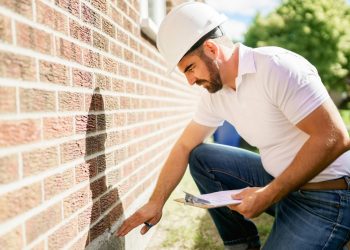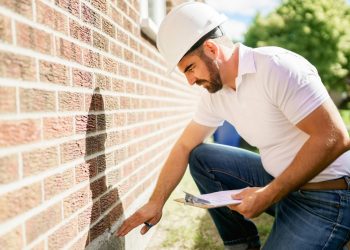When buying a home for the first time, the process can seem so daunting that you can’t even come up with the questions you need to ask. The homebuying process is similar for every sale, regardless of the region or price point. So, if you’re a first-time buyer with questions, you’re in good company. Read on for the most common questions first-time homebuyers have.
What is the first step to take in the homebuying process?
Become pre-approved. Unless you’re paying all cash, you will need a mortgage for the home. To do this, you need to become pre-approved to know how much you can afford. The mortgage lender will calculate this based on your income, credit score, debt, and employment.
How do I find a real estate agent?
Your network, such as your family, friends, and social media, is often the most reliable way to find a real estate agent. If you’re looking in an area where you don’t have any personal connections, you can reach out to the area’s chamber of commerce or search online or social media reviews. Or, you can contact a referral agent, which means you can reach out to a trusted agent in your area, and they can connect you with an agent in the place where you’re looking,
What questions should I ask an agent?
- What does your experience entail?
- Are you part of a team, and will I be working directly with you for the process?
- Do you have an area in which you specialize (i.e., luxury homes, first-time buyers, etc.)?
- What is your knowledge of the area – do you live there?
- What is your preferred method of communication?
How far in advance should I start the home search?
Finding a home is primarily based on the local market conditions and your search parameters. Allowing two to three months to find your ideal home offers a reasonable time cushion. Once your offer is accepted, the closing process can take 30 to 45 days, depending on the circumstances.
What happens during the closing process?
- Escrow: After you extend the offer, there are negotiations, and the seller accepts, the buyer submits earnest money, which indicates a buyer’s sincerity in the house. This money goes into an escrow account, which will be applied to a down payment.
- Title search: The buyer’s attorney orders a title search, so there won’t be any issues transferring ownership.
- Home inspection: The home inspection is completed seven to 10 days after signing the contract. As the buyer, you’re responsible for hiring the inspector. Attending the inspection will help you understand any issues the inspector discovers. Based on the findings in the inspection report, you may go back to the seller with items that need to be repaired, or you can ask for credits to cover the cost of the repairs. Common repairs include:
- Home appraisal: If you’re financing the house with a mortgage loan, your lender will arrange a professional appraisal. An appraiser will visit the property to ensure it appraises for the agreed-upon sale price. If it appraises below the sale price, you must either pay the price difference or negotiate with the seller to lower the price.
- Final walk-through: 24 hours before closing, you will inspect the house one last time to ensure that the home’s condition is the same as when you made an offer. You may need to push back the closing date if you uncover significant issues.
- Closing day: This is the day when the house officially transfers ownership, and the buyer gets the keys. It’s also a day notorious for extensive paperwork, so it’s essential to read through these documents carefully to ensure they are error-free and you’re clear on the terms. You will pay the closing costs, and the title will be transferred to your name at the end of the closing, meaning the home is officially yours.











